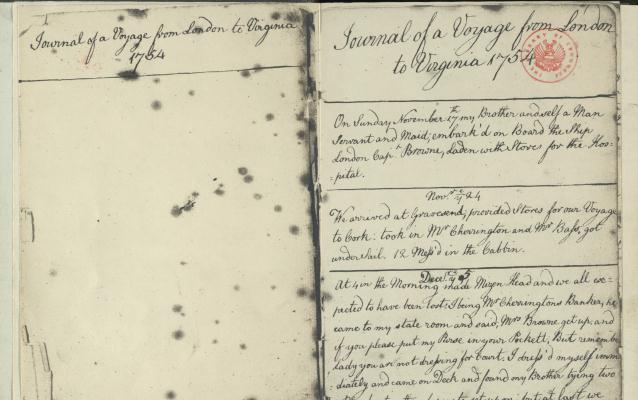George Washington marched with General Braddock, but have you heard about Charlotte Bristowe Browne who also served at Fort Cumberland?
Not likely. But Browne was an essential member of General Edward Braddock’s army, and the first nurse to serve at Fort Cumberland.
In 1754, as Matron of the General Hospital for the Braddock expedition, Charlotte left her children to sail with the fleet transporting the 44th and 48th British regiments from England to Virginia.
By June 1755, Matron Browne was headed overland for Fort Cumberland. As the party neared Oldtown, Maryland, she wrote in her journal:
“We marched but there is no describing the badness of the roads. I walked as far as I was able. The poor horses no longer regard the smack of the whip or beat of the drum, and as to Black (Charlotte’s horse) she could go on no further. 2 of the waggons (sic) broke down.”
Of Fort Cumberland she wrote: “the most desolate place I ever saw – the fort has no internal water supply and is crowded with wives of the enlisted men and local families who sought protection from the local Indian attack.”
After Braddock’s defeat at the Battle of the Monongahela, the sick, wounded, and dying arrived back at the fort on July 15. Charlotte Browne led their medical care.
Later, she travelled with the retreating soldiers to Frederick, Maryland, then to Philadelphia, Pennsylvania, and finally to Albany, New York. At each halt, Brown had to find quarters and scrounge for basic furnishings for herself and her nurses.
Browne faced questions about her reputation. In Albany, for example, some women assumed she was Braddock’s mistress. She was accepted into local society when the daughter of an officer who had known her in the mid-1740s vouched for her.
She ended her journal in August of 1757, too overwhelmed with work to write any further.
Charlotte Bristowe Browne is the only nurse that appears as an individual in records of Fort Cumberland and the French and Indian War. Women and their professions are mostly ghosts in Colonial history.
As an example, “Allegany County – A History” by Stegmaier et al mentions Craik and Mercer as “among the doctors” attached to Braddock’s army, but not a mention of any women – including nurses.
Let’s celebrate this International Women’s Day by researching and remembering the remarkable women of our past. We now know better than to ignore them.

